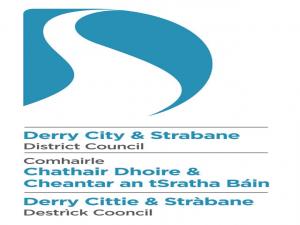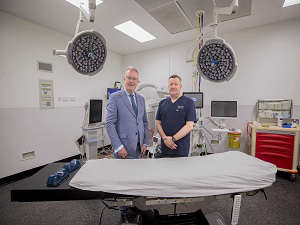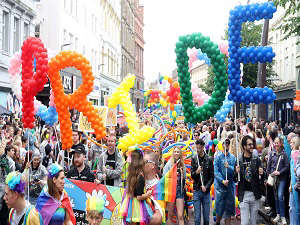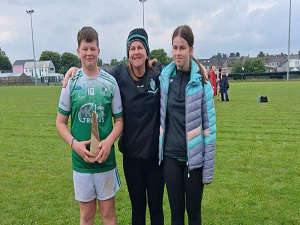
by Gráinne Connolly
Derry City and Strabane District Council (DCSDC) has agreed its budget for the 2018/19 financial year, with a commitment to further invest in capital development and invest in growth and investment projects across the City and District.
In order to ensure there is money available for these investments, an increase of 2.99% to the District Rate has been struck.
A spokesperson for the DCSDC said:
"The increase will allow the Council to continue with its very impressive capital development investment plans that include its new Strategic Leisure Capital Plan for Templemore and Strabane, the ongoing development of parks and greenways, investment in new community centres, as well as continued investment in festival and events, community services, jobs and skills."
To date almost £35 million has been spent by the new Council on a range of capital projects across all services.
These include £1.39m on new community centres, £11.92m parks and greenways, £12.6m on sports and leisure provision and £8.26m on other projects.
A further £63m of projects are progressing with full funding secured, including the Brandywell Stadium redevelopment (£7m), Melvin 3G (£1.4M), 3 cross border greenway projects (€20m) and a range of other parks, greenways, community centres and pitches projects.
This year’s rates increase will ensure further Council funding of £20m- £25m is available to leverage external capital funding to drive forward our ambitious capital plan.
In addition to the inflation rate of 3.1%, the Council is having to absorb a number of statutory pressures including pay awards and pension costs, central government cuts, including the very disappointing continued reduction of the Rates Support Grant.
Following the agreement last year of a two-year funding package for the City of Derry Airport, there is no proposed increase to the annual subvention budget.
Mayor of Derry City and Strabane District Council Cllr Maolíosa McHugh, welcoming the new budget and the commitment to invest in growth across the Council area, said he particularly welcomed the Council’s commitment to invest in jobs and skills.
“In keeping with the strong emphasis on education and skills in our Inclusive Strategic Growth Plan I am very pleased to see an additional £200k investment to assist in creating a better skilled and educated workforce and improve our young people’s attainment levels.
"I am very pleased to see the positive impact our investment in growth has had to date and the ongoing commitment to continue to invest and to drive efficiencies so that we can continue to invest in our capital plan, our community services provision, festivals and events."
He also welcomed the fact that the Council’s ongoing investment over the years has resulted in the growth of its rates base particularly among non-domestic properties and contributed to a fall in unemployment levels across the City and District.
Council Chief Executive, John Kelpie said the £500k investment in Council’s capital plan is a critical part of the Council’s 5-year plan to ensure Council’s key strategic capital projects can be funded. To date, the Council has delivered £34.36m of capital projects in the past three years and a further £63m of projects in progress and totally funded.
He said that among the significant investment projects earmarked for advancement and delivery were the advancement of a number of major exciting projects.
“Three years since the establishment of the new Council and the organisation has to date identified and realised significant efficiencies of almost £2.3m to assist with the delivery of our significant capital aspirations and the objectives and targets set out in the Strategic Inclusive Growth Plan.
"This along with new rates investment by the new Council has grown our growth fund of £3.165m and enabled reinvestment into a number of areas including our capital plan, major events and festivals, including the Foyle Maritime Festival and the return of the Clipper Round the World Race this summer, investment in tourism initiatives and community services.”
In terms of the District Rate, Mr Kelpie explained that DCSDC had lower rates-bases and higher levels of deprivation to invest in the development of their district, resulting in a rate increase.
However, he also expressed that lobbying to get these cuts reversed would remain a key priority for the council moving forward.
The Council Chief Executive added that the district rate increase will mean an average increase of £13.10 per annum or 25 pence per week to the average domestic ratepayer; adding that this year's budget was built on the continued growth of domestic and non-domestic rates base and the significant work that's been done to secure £2.289m in efficiency savings.


 Mother and two children murdered in Maguiresbridge to be buried together By Jonathan McCambridge and Rebecca Black, PA
Mother and two children murdered in Maguiresbridge to be buried together By Jonathan McCambridge and Rebecca Black, PA
 Surgeon tasked with tackling waiting lists says they are a ‘national shame’
Surgeon tasked with tackling waiting lists says they are a ‘national shame’
 First Minister disappointed to not attend Belfast Pride this year
First Minister disappointed to not attend Belfast Pride this year
 Crowds expected at vigil for mother and children killed in Co Fermanagh shooting
Crowds expected at vigil for mother and children killed in Co Fermanagh shooting